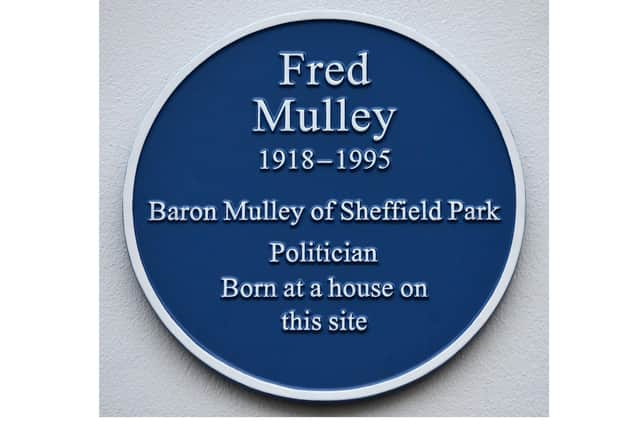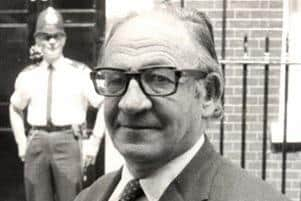Blue plaque unveiled in Leamington in honour of prominent post-war Labour politician Baron Fred Mulley
and live on Freeview channel 276
A new blue plaque has been unveiled in Leamington in honour of Labour politician Baron Fred Mulley.
Baron Mulley was a former Warwick School pupil.
For exceptional intellectual endeavour and achievement, a Mulley bowtie may be awarded at the school.


Advertisement
Hide AdAdvertisement
Hide AdThe unveiling took place at the SPAR shop at 34 -56 Clemens Street – the street where Baron Mulley grew up.
The town’s Blue Plaques Group, with the help of Warwick and Leamington MP Matt Western’s office, were able to track down Baron Mulley’s daughters Corinne and Deirdre, who are both still living in Leamington and attended the unveiling event on Thursday (November 30).
Baron Mulley was born in Leamington in 1918.
His family were passionate about education, and when he won a place at Warwick School in 1929, they scrimped and saved to ensure that he could make the most of it.


At the outbreak of war in 1939, Baron Mulley enlisted in the Worcestershire Regiment and by December, was in France.
Advertisement
Hide AdAdvertisement
Hide AdHe was Intelligence Sergeant to the 7th Battalion during the retreat to Dunkirk, where he was wounded and captured in May 1940, and spent the next five years as a prisoner of war.
As well as becoming a prominent post-war politician, he was a barrister–at–law and economist.
Baron Mulley died in March 1995 at the age of 77, and was buried in the churchyard at Whitnash, close to where he grew up.